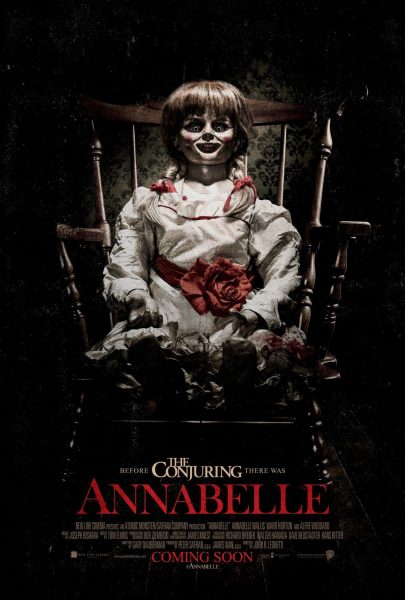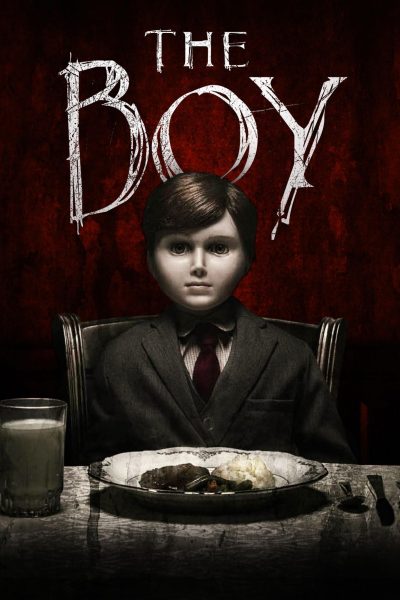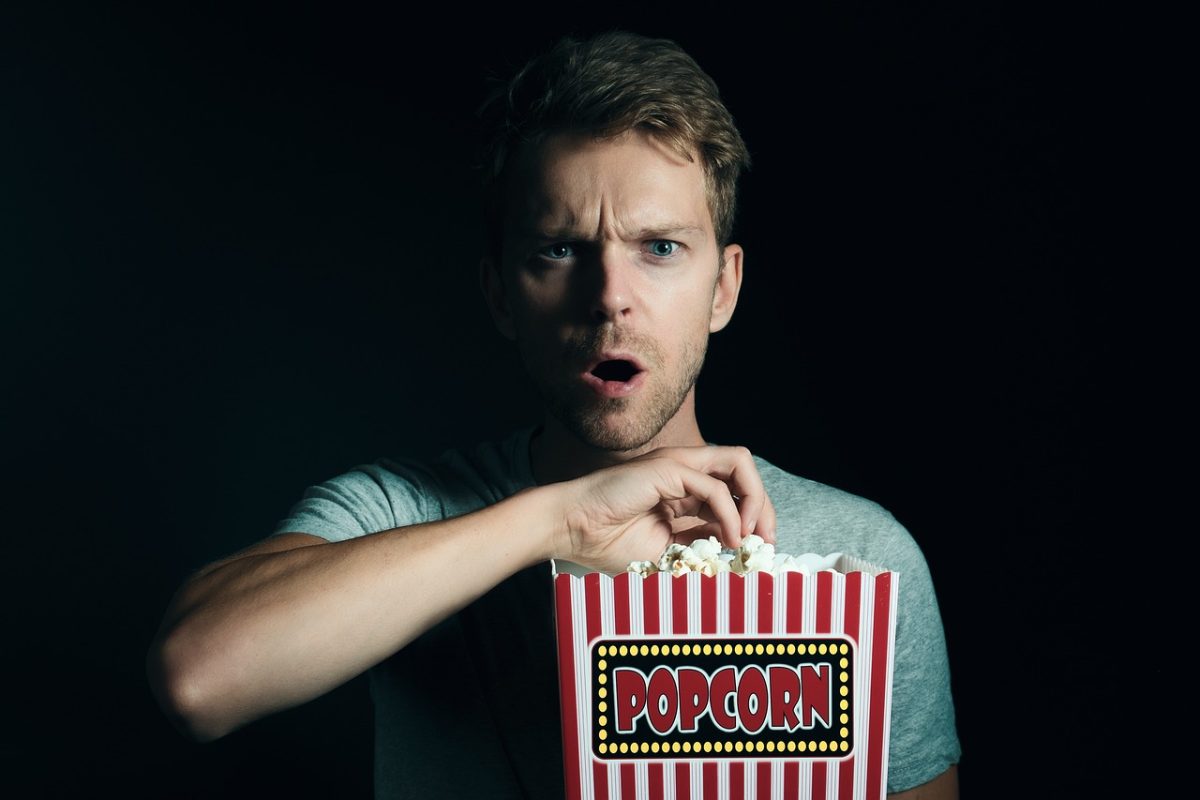As a horror enthusiast myself, I sometimes have to ask myself this question. I’m very squeamish when it comes to things such as amusement park rides, high places, and insects of all colors and sizes. I scream when I hear loud noises, and I boil water on medium instead of high. As you can see, I’m not very hardened to horror in my everyday life. I’m definitely not the only person who thinks scary or disturbing occurrences such as these are not entertaining or fun to experience. Then why am I still so drawn to movies and TV shows that will have me jumping out of my seat and staying up late at night? Many horror fans also feel the same. Why are so many people attracted to horror media when it seems like normal humans should have a natural aversion to it?
The External Perspective
Stimulation
Many people watch horror, possibly unknowingly, for the heightened senses it gives them. We usually gain heightened senses from two different reactions: positive ones (excitement, exhilaration, e.g. trying to sleep on Christmas Eve) and negative ones (fear, anxiety, e.g. getting lost in the mall). Horror movies stimulate both positive and negative reactions, therefore watching a horror movie is technically one of the most pleasurable acts to heighten adrenaline. Have you ever felt like you noticed more than usual, or you were thinking faster than you would normally while consuming horror content? If so, then you know what it feels like to have your senses heightened by a horror movie, similar to an adrenaline rush.
Curiosity
Humans have a natural propensity to find out more about the world and fulfill their desires. One of these is to discover the dark side of the human psyche. Watching horror movies, then, might give us some strange kind of satisfaction. If this sounds like nonsense to you, think about gory horror. Some fanatics don’t really know why they enjoy gore as much as they do, but this could explain it. Gore disgusts us but excites us too. Another way to think of this is like a spectrum of the quality of a movie. One side has feel-goods, comedies, romances, etc., while the other side has darker or more inquisitive films, in this example horror. It’s totally normal to be curious about dark topics as well, because they’re another part of our “psyche”. We also seek adventure in this same way, so not only are we fulfilling the question “what’s the worst someone could do?” but we are also experiencing something hopefully new and different. After all, most situations in horror movies wouldn’t be seen or experienced in normal life. Watching a horror movie is a lot like skydiving when you look at it this way. It may be new, dangerous, and scary for you, but it invigorates you when you really get into it. Our curiosity can land us in an exciting place while consuming horror.

The iconic doll, Anabelle, from the famous horror movie The Conjuring.
The Protective Frame
To enjoy a movie that includes violence, suspense, jump scares, and other various elements of horror, we need to feel safe.
- First, it has to be clear we are separated from what’s on the screen. We can’t enjoy the movie if we feel like the evil entity will come out and get us, but we can if we know it won’t! If you like to watch horror, you’ve likely noticed this before. You suddenly break free from what’s on the screen, remembering you’re wrapped in cozy blankets and warm pillows and have four walls and a roof over your head. This kind of feeling enhances the experience by making you feel safe and comfortable, especially when it contradicts what’s on the screen.
- Similarly, we need to feel “above” the acting. We need to be subconsciously aware that it’s just a movie that we’re enjoying! This relates to the first requirement, that the movie can’t feel too real. To fulfill this requirement, directors might include some lines or scenes that make you reflect on the meaning. For example, if the horror movie is about a serial killer who tries to open the doors of houses, maybe the audience will notice if a character leaves the front door unlocked. This makes us feel like we’re in a different place than the movie as we remind ourselves we’re watching it.
- Finally, the threat on the screen can’t seem too formidable. If we think that if we were in that situation, we would die, the fear factor would go up and the enjoyment factor would go down. When I get too scared when watching horror, I simply can’t enjoy the movie, and sometimes I feel a little depressed. Horror movies are made to entertain their viewers, not to make them feel unsafe or sad!
Fulfilling the protective frame of horror is a good way for directors to ensure they produce exceptional horror movies. Those who stray away from horror likely can’t settle in their own protective frame and are unsettled by horror instead of enlivened by it.

This horror flick stars Lauren Cohan as the caretaker of a spooky doll with a mysterious past.
The Internal Perspective
Unlike psychology suggests, Stephen King, widely known horror writer and admirer, takes on a different perspective. He claims that we all have dark desires deep within us that horror movies explore. We enjoy them so much because it feels like coming out of our shells. Consider dark jokes and twisted jokes. King gives an example in his essay “Why We Crave Horror Movies”: “What’s the difference between a truckload of bowling balls and a truckload of dead babies?” . . . You can’t unload a truckload of bowling balls with a pitchfork” (King, 3). Though this joke seems horrible and disgusting, some of us may laugh at it. Insanity, he claims “becomes a matter of degree” (King, 2). Apparently, we have concealed urges to do bad things like steal ice cream from that annoying baby or pull the fire alarm when no one’s looking, and while they aren’t necessarily good for people, we shouldn’t look down on them too much because they’re a part of us!
Think back to the dark side of the human psyche previously mentioned. Many psychologists suggest we have interests in that psyche because it’s foreign and new to us. Seeing that nonnative territory can be dangerous and possibly damaging, we must take caution and explore just the right amount to instill some joy in us without offsetting our sense of safety. Stephen King encourages a different frame of reference, that maybe the danger is inside of us after all. We have to let the evil out every once in a while, which gives us a sense of fulfillment and happiness. As to why we like horror, the answer is unclear for now. All we can know for certain is not to be ashamed of our sporadically depraved and bloody desires and instead indulge in horror when we just need a thrill or a break.
Sources:
https://blogs.uoregon.edu/christopia/2013/11/11/why-we-want-to-be-scared/
https://hbr.org/2021/10/the-psychology-behind-why-we-love-or-hate-horror
https://collider.com/stephen-king-why-we-crave-horror-movies-essay/
https://faculty.uml.edu/bmarshall/Lowell/whywecravehorrormovies.pdf

